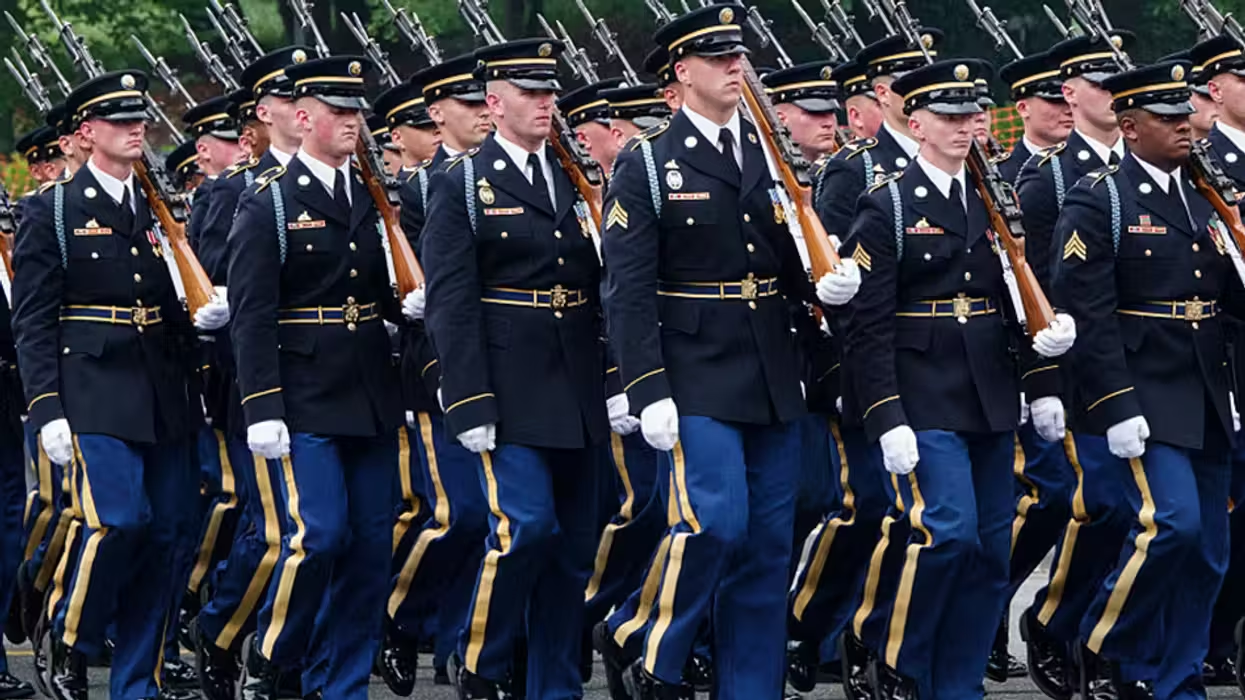Far too many posts in the news feature a boy being punished by a school because he did something — or was fascinated by — something that any boy would be enthusiastic about. This latest story out of Collinsville, Illinois, is one such story.
The story starts with a Facebook post from a mother telling a story about how she went to pick up her 4-year old son from school like she would on any normal day, and ends with the school informing her that her son had been suspended for seven days due to his having a problem.
The problem was that Hunter, the young, was acting like a young boy.
The "stone faced" teacher, as the mother Kristy Jackson describes it, told her that her son had a "shotgun bullet" with him when he came to school. As Jackson says in her Facebook post, the thing her son possessed wasn't a "shotgun bullet," but simply a spent .22 casing.
According to a letter from the school's director, Hunter had been repeatedly warned against doing thing such as using toys as make-believe guns, which violated the school's policy.
You can read TheBlaze's full report of the story here.
This is a continuing pattern that you see in schools, where the simple urges and fascinations of boyhood are considered to be too dangerous to be allowed. In 2013, a story about a 7-year-old boy who was suspended for throwing a pretend grenade at bad guys generated went viral. In that same year, a Baltimore youth was trying to make a mountain out of his breakfast food that ended up looking too much like a firearm, and also resulted in the boy's suspension.
Similar stories can be seen about an Ohio boy in 2014, a Maryland boy in 2016, and a whole host of other instances of boys being suspended for creating fake weapons with the objects around them that can be found with a quick Google search.
But why are schools becoming so intolerant of boyhood?
The key component of the majority of boys' play consists of elements of danger. Boys fantasize of conflict, they love to test their strength against their fathers in mock fights, they're aggressive, and daydream about battle. Many of the games they prefer involve death and destruction. While this may seem like a horrible thing, this is actually a positive.
Boys need to learn to be dangerous. In fact, they need to be encouraged to be so. It should be understood that being dangerous is not a bad thing. The bad comes when the boy has not properly been taught how to utilize the dangerous aspects of his nature for good. When he has been taught to embrace the dangerous parts of himself, he becomes the man society relies upon to uphold it.
He will go on to become a good protector of his family, a police officer, or a soldier. These dangerous aspects also help him to become more confident in himself. He doesn't back down from conflict, be it in the office, or in the home. He is the good, dangerous man, and he is a pillar of society.
But it starts with the early years, when the boy is naturally starting to discover this dangerous side of himself. Sadly, we are teaching boys that they are somehow dysfunctional for doing what comes naturally.
As Christina Hoff Sommers goes over in her "War on Boys" video for Prager U, "girl behavior is the gold standard in schools. Boys are treated like defective girls." We medicate boys when they become too kinetic for schools to tolerate, drugging them into sitting quietly.
Schools are observing a very shallow view on boys. In essence, they are punishing boyhood and eliminating a badly needed recourse in the process.
As a society, we should be embracing these dangerous tendencies in boys, and molding them. Not dismissing them, or subduing them, but teaching the boys between good dangerous behavior and bad dangerous behavior. Yes, shooting the bad guy is a good thing. Yes, learning to fight is great when done to defend yourself or others. Yes, sometimes force is necessary. These are just some of the lessons needed to be learned to raise the good, dangerous man.
As "Wild at Heart" author John Eldredge so eloquently summarizes the good, dangerous man, "Yes, a man is a dangerous thing. So is a scalpel."
If we're to raise these kinds of men, we must become intolerant of today's intolerance of boyhood.







